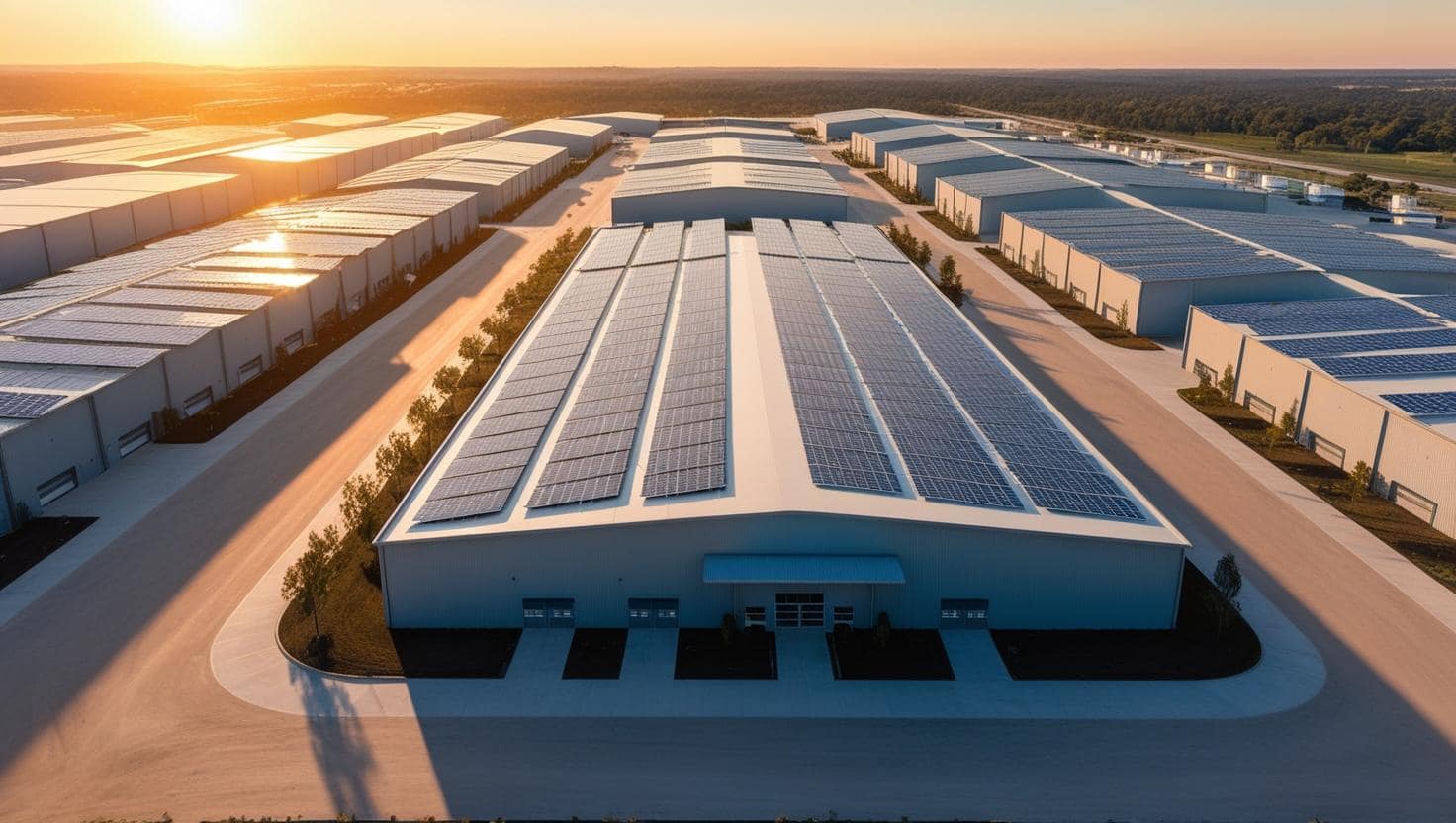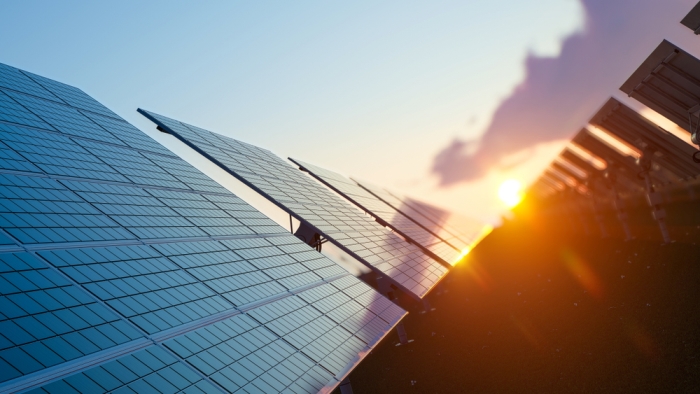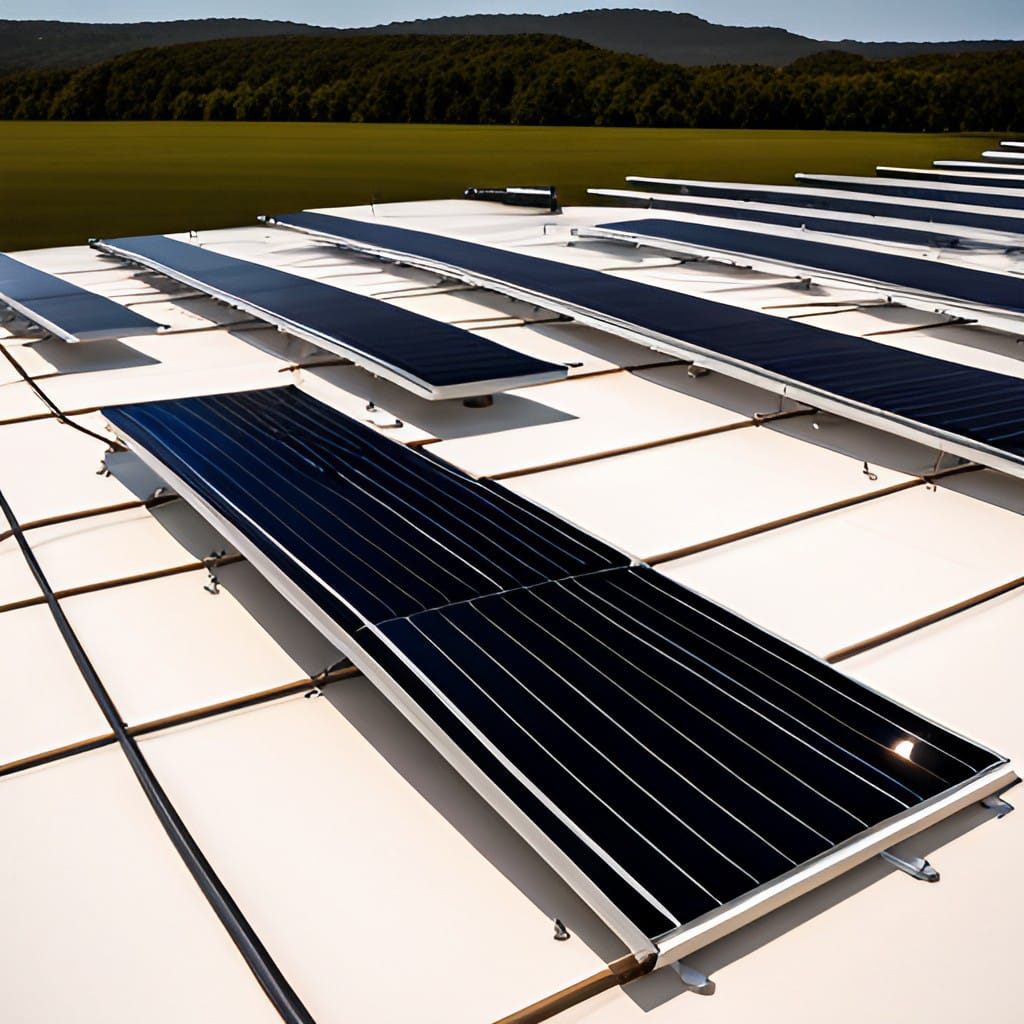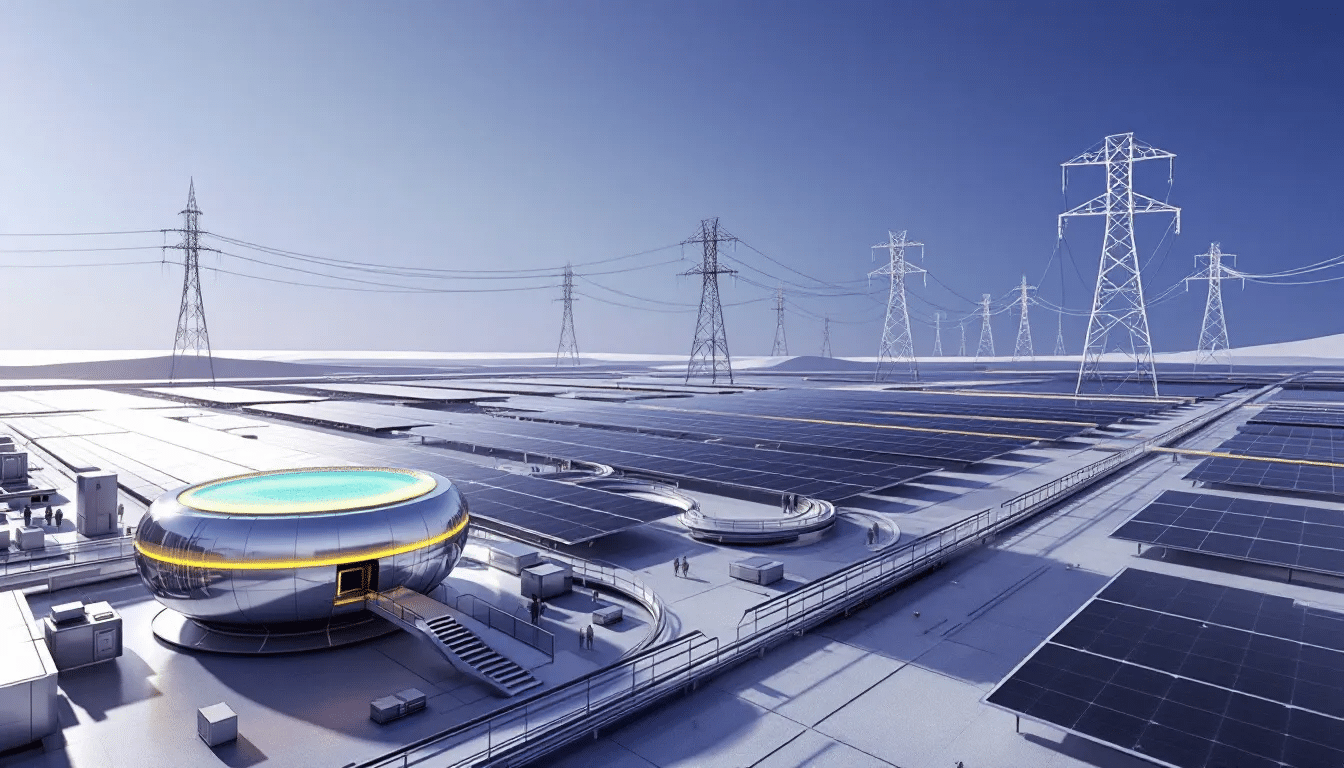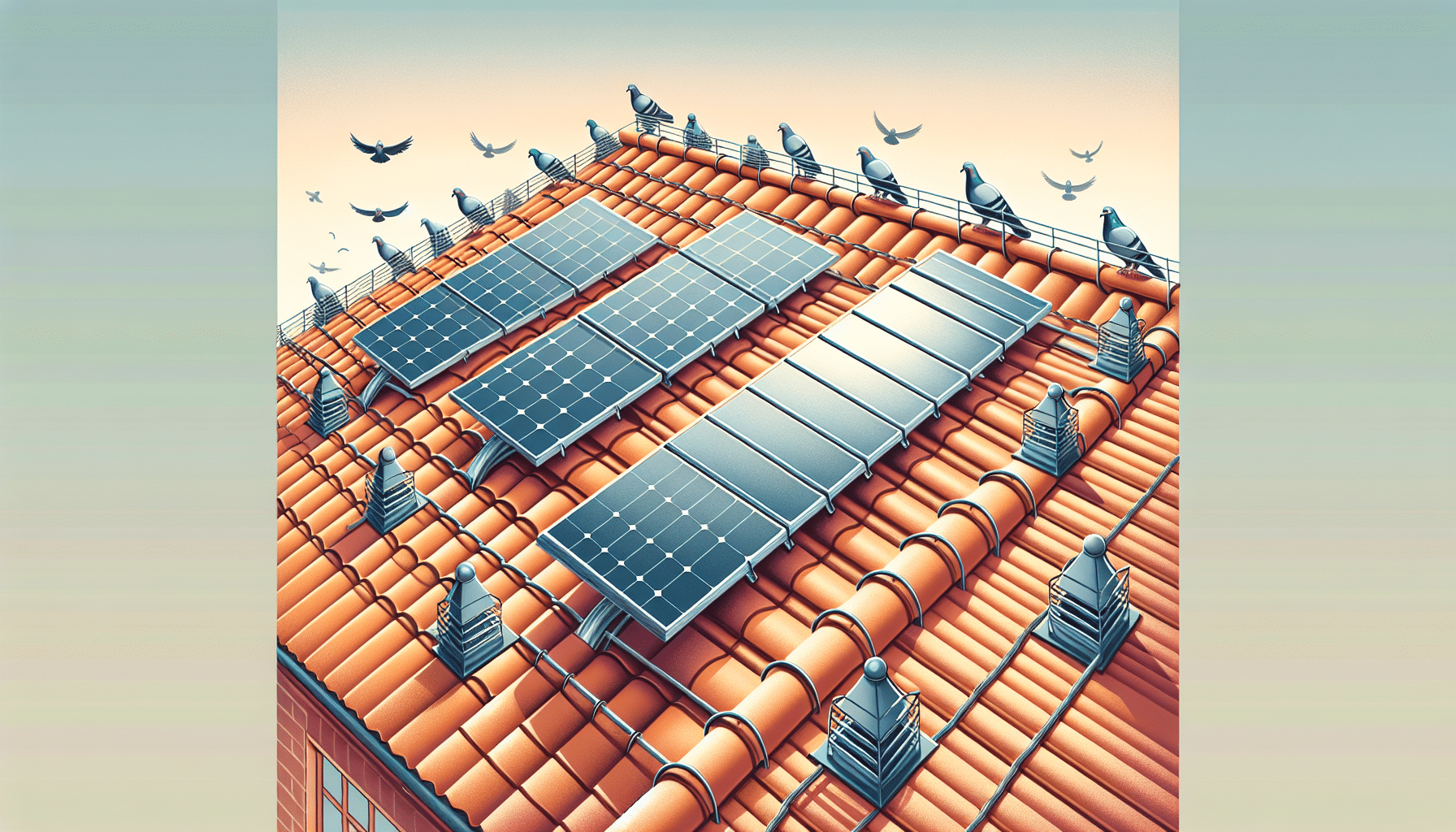Key Takeaways
- Roof Suitability Matters: Your roof’s condition, size, and structural integrity are key factors in determining its readiness for a commercial solar panel system.
- Beyond Installation: Ensuring proper electrical infrastructure, fire safety compliance, and environmental considerations will maximize the effectiveness and safety of your system.
- Financial and Regulatory Incentives: Take advantage of local, state, and federal incentives to offset installation costs and ensure compliance with permitting requirements.
Switching to solar energy is a savvy move for commercial property owners. With the potential to slash energy costs, increase property value, and reduce your carbon footprint, more businesses are looking skyward toward solar panels. But before you can harness the power of the sun, you need an essential answer to one critical question: Is your roof ready?
This guide will walk you through the key factors that determine if your roof is suitable for a commercial solar panel system. From its condition and size to structural integrity and local regulations, we’ll help you feel confident moving forward with your solar project.
Assessing Your Roof’s Condition

Your roof’s condition directly impacts the lifespan and performance of your solar panels. After all, solar systems are designed to last 25 years or more, so your roof needs to match or exceed that timeline.
Start by scheduling a thorough inspection to evaluate your roof’s age, material, and any existing damage. If your roof is nearing the end of its warranty or has seen better days, it might be more cost-effective to replace it before the installation.
Pro Tip: A reputable solar installer, like Sun Source Energy, will assess your roof’s condition and provide recommendations for any necessary repairs or replacements before starting the installation.
Commercial Roof Size and Space Requirements
Do you have enough space for solar panels? The size of your roof is a crucial factor in determining the number of panels your system can accommodate and, ultimately, how much energy you’ll produce.
- Larger Roofs: More space equals more panels, leading to higher energy production and bigger savings.
- Smaller Roofs: Don’t worry! Even smaller roofs can benefit from a well-designed solar system. A professional installer can customize the layout to maximize energy efficiency.
Remember to account for obstructions like HVAC units, vents, or skylights—they can impact panel placement. Also, make sure there’s room for maintenance access and potential system upgrades.
Structural Integrity and Load Capacity
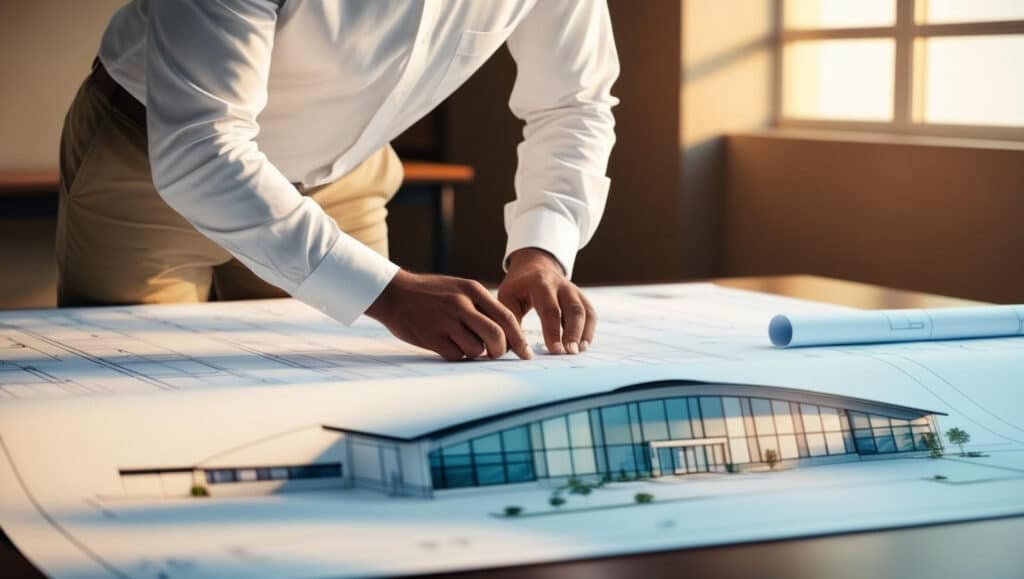
Can your roof handle the additional weight of a solar system? The structural integrity and load capacity of your building are critical to ensuring safety and stability.
Solar panels and their mounting systems add weight to your roof. A professional evaluation will determine if reinforcements are necessary to support the load. Structural upgrades may cost extra initially, but they ensure the long-term performance of both your roof and the solar system.
Electrical Infrastructure and Capacity
Your building’s electrical system plays a big role in the success of your solar installation. It needs to handle the energy generated by your solar panels and distribute it effectively.
If your current electrical infrastructure falls short, upgrades may be required. For example, you might need to replace outdated wiring or install additional equipment like inverters.
Furthermore, consider the potential to add energy storage systems, such as batteries, to optimize energy use and further reduce reliance on the grid.
Fire Safety and Emergency Access
Safety first! Your solar panel system must comply with local fire safety regulations and provide easy access for emergency responders.
Experienced solar installers prioritize designing systems that leave clear pathways for firefighters and adhere to all necessary fire safety codes. You’ll want to work with a contractor who emphasizes both efficiency and safety.
Quick Reminder: Solar panels should enhance your building, not put it at risk. Be sure your installer factors in emergency access when designing the system.
Environmental and Sustainability Considerations
Installing commercial solar panels doesn’t just save money—it’s a step toward sustainability. Lowering your carbon footprint speaks volumes to customers, employees, and stakeholders.
For companies focused on green initiatives, solar energy aligns perfectly with reducing environmental impact while meeting sustainability goals. Pairing panels with energy storage systems further reduces your reliance on the grid, increasing your eco-credentials.
Financial Considerations for a Commercial Solar Project
Thinking about the price tag? Installing commercial solar panels is an investment, but there are plenty of financial incentives to sweeten the deal.
- Upfront Costs: While purchasing a solar panel system requires capital, financing options like power purchase agreements (PPAs) can reduce or eliminate out-of-pocket costs.
- Long-Term Benefits: Lower energy bills, increased property value, and favorable ROI typically offset the installation cost within a few years.
- Subscriber Perks: Don’t miss out on federal and local incentives, grants, or tax benefits. These savings can dramatically reduce the overall project cost.
Did You Know? Properties equipped with solar energy often attract environmentally-conscious investors and tenants, potentially making your building more marketable.
Local Regulations and Permitting for Solar Panels
Every region has its own rules and permitting requirements for commercial solar projects. Navigating these regulations can feel overwhelming, but it’s a vital step in the process.
- Ensure compliance with building codes, zoning laws, and renewable energy policies.
- Take advantage of local incentives to offset costs.
- Work with an experienced installer who understands your area’s permitting process and ensures your project meets all legal requirements.
The right partner will handle these details for you, allowing you to focus on enjoying the benefits of solar energy rather than stressing over permits.
Sun Source Energy is Here to Answer All Your Commercial Solar Questions
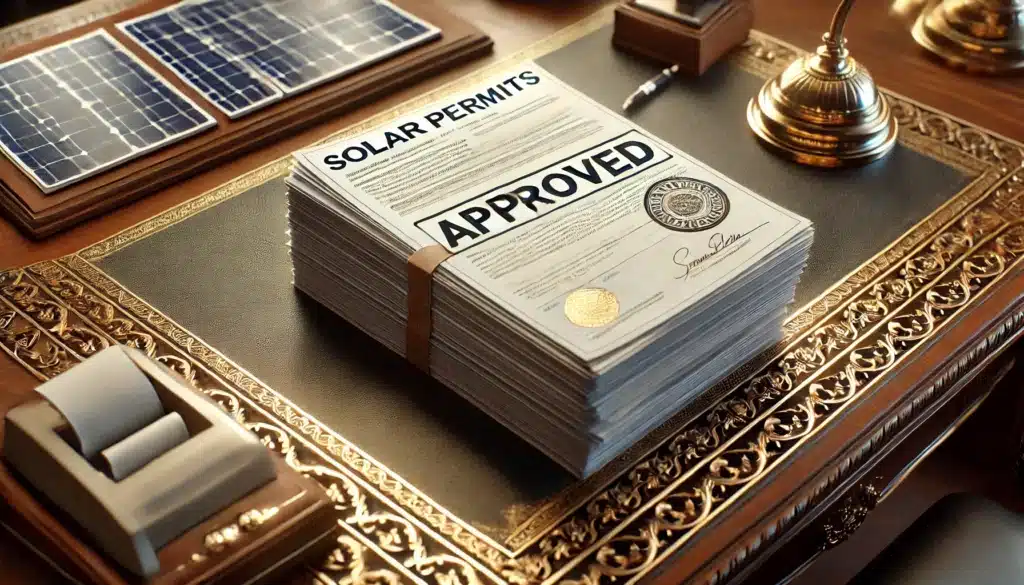
Switching to solar panels is a big decision, but with the right partner, it becomes a seamless process. At Sun Source Energy, we specialize in evaluating roofs, crafting tailored solar solutions, and maximizing returns on your installation.
Curious if your building is ready for solar?
Contact Sun Source Energy for a free consultation and start your journey to energy independence.
Take the Next Step Today
With the potential to save money, reduce your carbon footprint, and boost property values, there’s never been a better time to transition to commercial solar panels. Don’t wait—get started today with Sun Source Energy.


